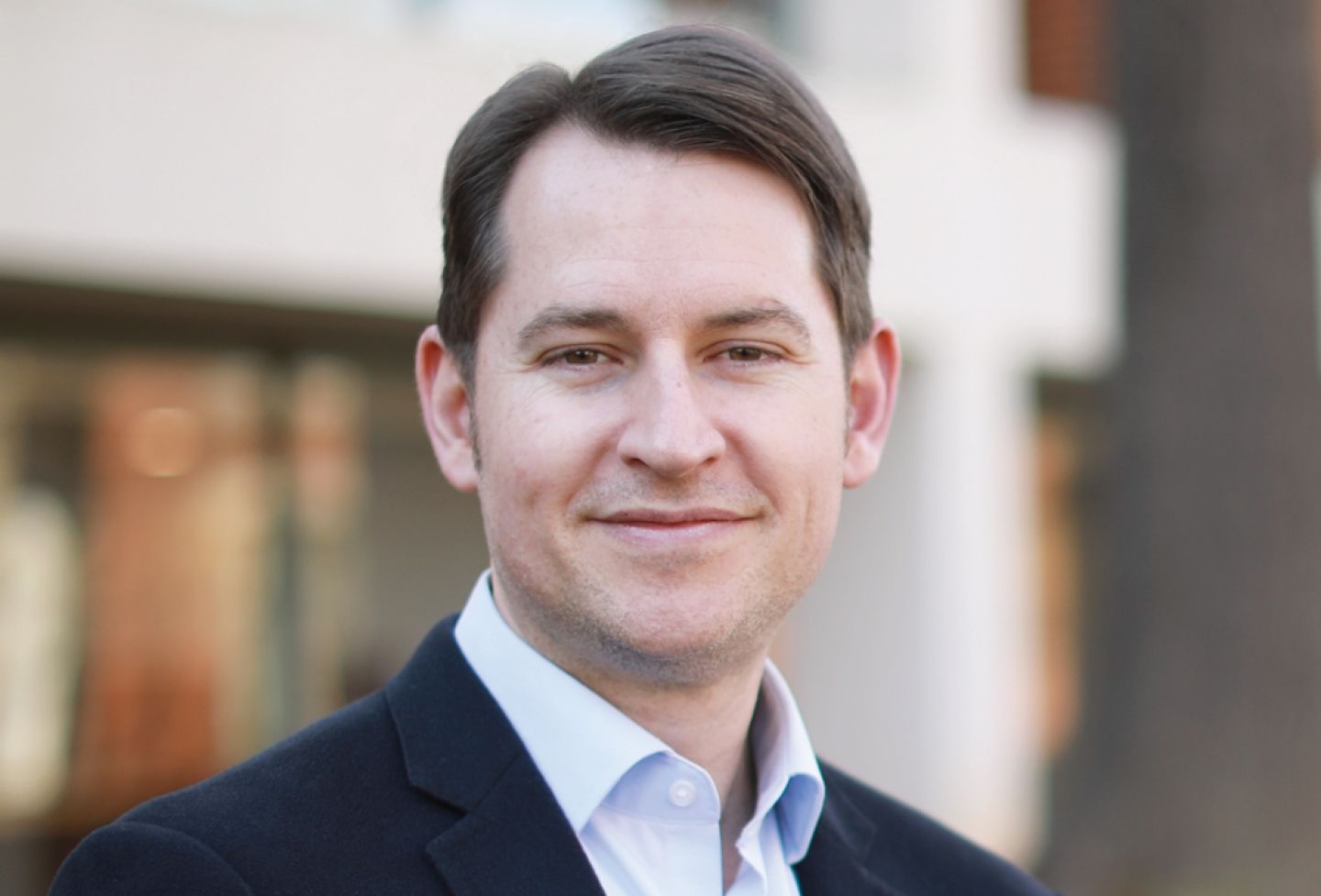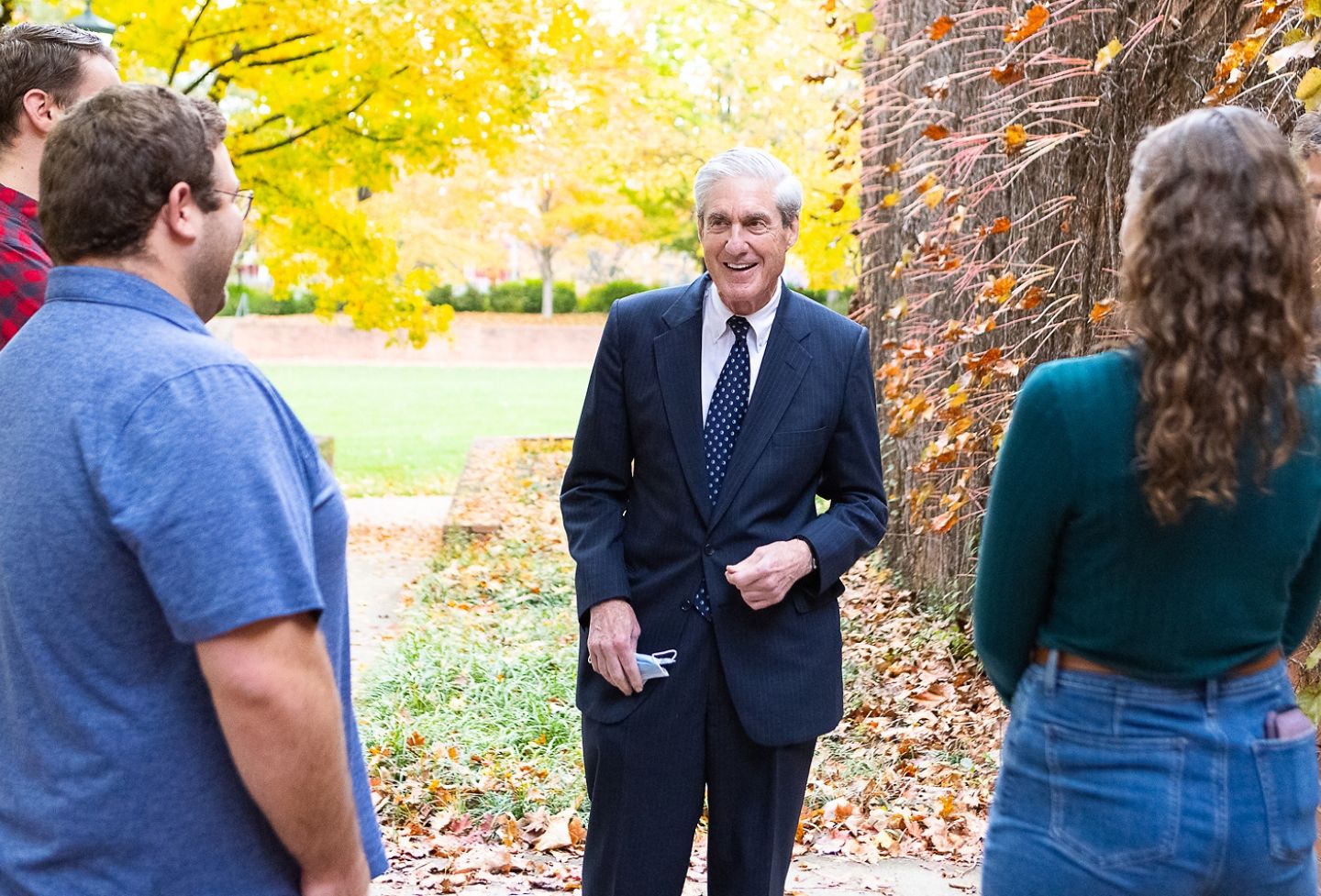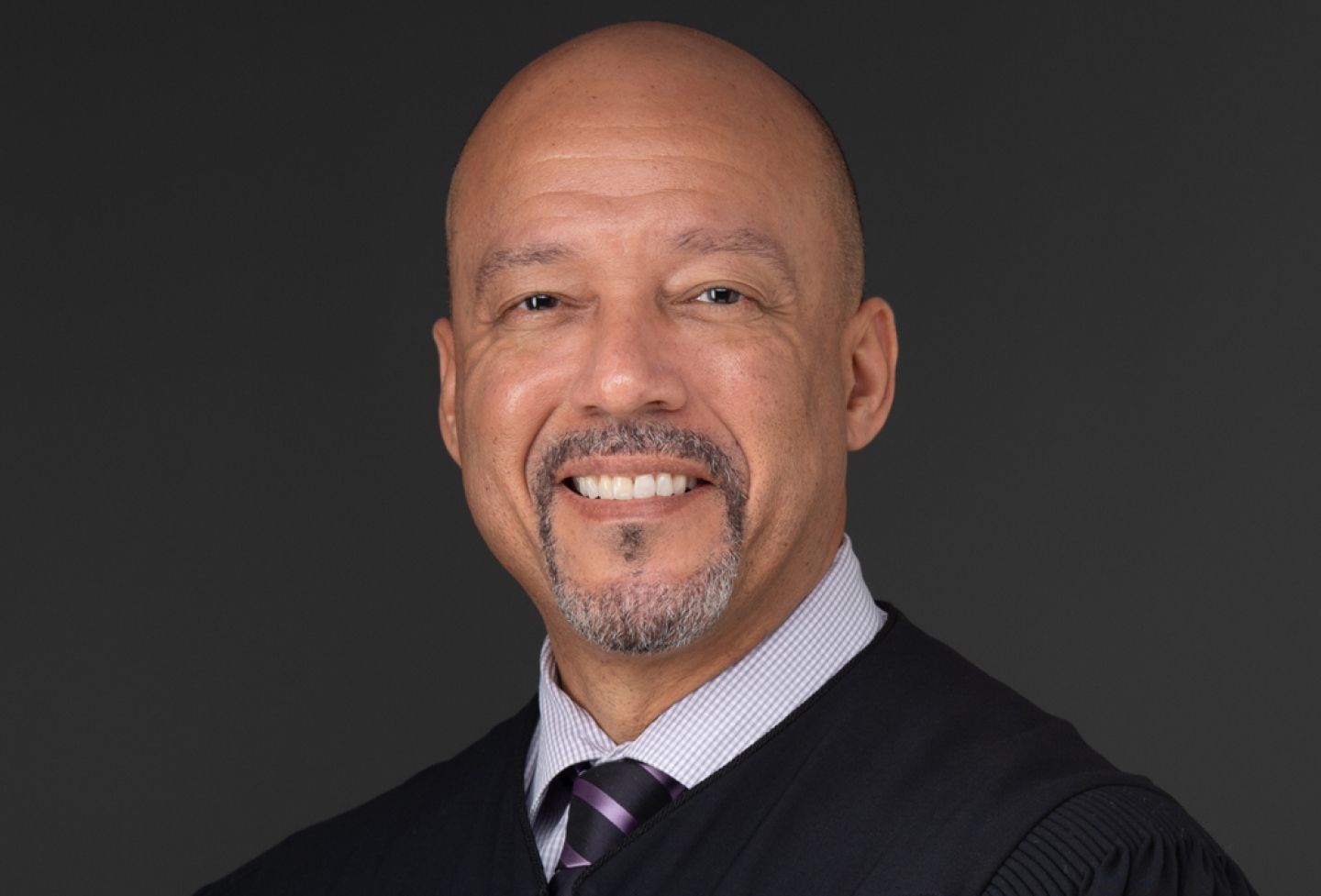By any measure, it was an exceptionally busy week.
On Aug. 9, Robert Borcherding ’99 was promoted to Army brigadier general and confirmed by the U.S. Senate to his new post as legal counsel to the chairman of the Joint Chiefs of Staff. He started his new job at the Pentagon on Aug. 13. The United States began its final withdrawal of troops from Afghanistan on Aug. 14, and Kabul fell to the Taliban just days after that. That left Borcherding little time to get up to speed.
“We quickly became consumed with all things Afghanistan,” he said.
The new legal counsel to the Joint Chiefs is nothing if not adaptable, and a quick study as well.
“My first few weeks were dominated by fairly complex interagency crisis management,” he said. “Since then, the pace has leveled off a bit, but it’s regularly punctuated by emerging national security issues.”
But perhaps the best way to describe what he does is to explain what his boss, Gen. Mark Milley, the chairman of the Joint Chiefs of Staff, does. The Joint Chiefs chairman is the principal military adviser to the president, the secretary of defense and the National Security Council, as well as the various U.S. military commands around the world. When the Joint Chiefs are called upon to make policy recommendations, one question that often arises, Borcherding said, is whether a certain course of action is legal. That often goes hand in hand with a second question: Even if something is legal, is it wise to pursue?
Borcherding and his staff of 20 military lawyers attempt to provide the Joint Chiefs with answers to those questions. It is a unique feature of the American military that each of its 11 combatant commands also has a legal team, and Borcherding and his staff advise them, as well. That’s a lot of clients to serve. “The days are long, but the weeks seem to fly by,” he said.
After graduating from West Point in 1993, the Chino Hills, California, native spent three years with the Army Corps of Engineers. He might have continued a career as an engineer, but law and international relations had always interested him. Borcherding attended UVA Law under the Army’s Funded Legal Education Program and earned a master’s degree in foreign affairs from the Graduate School of Arts and Sciences at the same time. He has since earned another master’s degree, in strategic studies, from the U.S. Army War College.
Over the course of his 28-year career in the military, Borcherding has been deployed overseas seven times. In his previous posting before his current job, Borcherding was stationed in Baghdad as staff judge advocate to the Combined Joint Task Force as part of Operation Inherent Resolve. Previously, he served in the judge advocate general’s Corps around the country and the world: for the 10th Special Forces Group and 4th Infantry Division in Fort Carson, Colorado; the 1st Infantry Division in Fort Riley, Kansas; the Joint Special Operations Command in Fort Bragg, North Carolina; and in Iraq. He also served as deputy chief for national security law to the U.S. Africa Command based in Stuttgart, Germany, and as executive officer to the U.S. Army Legal Services Agency at Fort Belvoir, Virginia.
In announcing Borcherding’s nomination to be legal counsel to the Joint Chiefs, Lt. Gen. Stuart W. Risch, the judge advocate general, said, “His selection represents the best of our regiment’s deliberate effort to train, mentor and grow exceptional operational judge advocates with the versatile experience, extensive legal expertise and proven leadership to advise the Joint Force. Colonel Borcherding’s strength of character and strategic vision will allow him to excel in this prominent and pivotal assignment.”
Borcherding is the second UVA Law graduate to serve as legal counsel to the chairman of the Joint Chiefs, following in the footsteps of retired Brig. Gen. Richard Gross í93, who held the post from 2011-15.
Military families are famous for their resilience and Borcherding extends that credit to his wife, Anne, who has moved with him 14 times during their marriage, and to their three daughters.
“We view our service in the military community as a vocational calling,” he said. “It doesn’t make the challenges any easier, but it does put them in perspective when you’re convinced that you’re doing what you’re supposed to be doing with your life.”
That is true even if Borcherding often can’t discuss exactly what he is working on.
“I basically tell them, read the news,” he said of his family. “If it gets your attention and it’s military-related, we’re probably talking about it and involved.”



